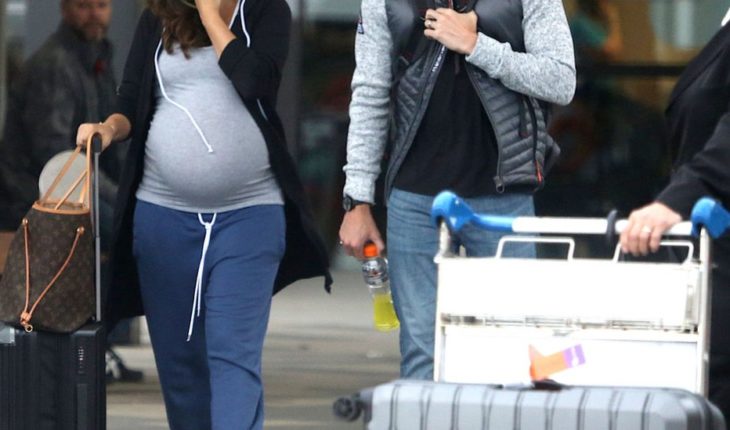Although hospitals have restricted their services and consultations to care for COVID patients and the general recommendation for the population is not to go to health institutions if you do not have a serious condition, care for pregnant women cannot be interrupted, just follow certain measures and go to the right place.
In fact, during the pandemic, sexual and reproductive health services, and in particular, care during pregnancy, childbirth and postpartum and the newborn, are classified as essential services to be maintained.
Read: Health reports 36 new deaths for COVID-19; 332 are already killed and more than 5,000 confirmed cases
This stipulates the Guideline for the Prevention and Mitigation of COVID-19 in the care of pregnancy, childbirth, postpartum and newborn, issued by the Ministry of Health on April 12.
According to projections of the National Center for Gender Equity and Reproductive Health, for the period from April to June, it is estimated that about 260 thousand obstetric events occur in the country, approximately 235 thousand births and about 25 thousand abortions.
In addition, considering the usual conditions of care, around one million 150 thousand prenatal checkups and nearly 200 thousand consultations would be granted during the postpartum.
The guideline states that all pregnant women are entitled to medical care, and to ensure this “it is essential to incorporate, as part of each state’s response plan, measures to continue these services, both healthy and suspicious and in confirmed cases of COVID-19”.
It is advisable – the document states – that each entity appoints a coordinating team for the implementation of the response, composed of health professionals with different areas of expertise, including health care, gynecologists and pediatricians, as well as guarantee communication between the heads of Epidemiology and Reproductive Health for decision-making.
Find out: Elmo and his Sesame Street friends give tips to girls and boys to tackle the pandemic
To ensure care for women, states are asked to identify units of the first level that have spaces for prenatal and obstetric care or those that can be installed with minimal adaptations and plan the installation of alternative and exclusive establishments for maternal and perinatal care.
In accordance with the “Hospital Reconversion Guideline”, hospitals focused on gynaectic care should not be part of the conversion plans to deal with COVID cases.
However, there are partially or total conversion hospitals with gynaecstetric services, which may be the first choice for the treatment of confirmed cases of pregnant women with COVID-19.
Pre natal consultations should be conducted at the first level of care, with the necessary prevention measures: spacing out the frequency of consultations and reducing the number of people cited per day, prioritizing care for women with high-risk pregnancy. In all cases a review should be made to rule out COVID risk.
Suspected cases will remain in home isolation for 14 days and may resume consultations if the breathing table has been resolved. The C-section indication shall be taken where medically justified and properly based on the clinical record.
In case of symptoms, alarm data or doubts about COVID-19 you can request telephone advice in the Epidemiological and Health Intelligence Unit: 800 00 44 800, in the COVID-19 hotline of each state, here you can consult: https://coronavirus.gob.mx/contacto/#directorio
The MATERNAL Line can also be called: 800 628 37 62 (MATERNAL), where they provide information on signs of alarm in pregnancy, obstetric emergency care, counseling for pregnancy care, childbirth and postpartum care, and support in breastfeeding.
The Plan TEL line is also available: 800 624 64 64 of the Care System of the National Population Council and the Mexican Institute of Social Security, which provides information on family planning and contraceptive methods, in a confidential and personalized way.
For guidance related to mental health and prevention or care for violence, the Lifeline is available: 800 911 20 00. And there’s also the
9-1-1 that in addition to dealing with emergencies in general, has the capacity to deal with cases of family and gender-based violence and to channel people in violence to the corresponding aid bodies.
Recommendations
During the evening conference on COVID-19 on Monday, Karla Berdichevsky Feldman, director general of the National Center for Gender Equity and Reproductive Health, recommended that pregnant women follow hygiene and healthy distance measures.
“For this group staying home is critical, because there are also populations of pregnant women with additional risk factors.”
It is important to pay attention to alarm symptoms for pregnancy complication, such as vaginal bleeding or fluid out, severe headache, blurred vision or seeing lightened, ringing of ears, swelling of the face, hands and feet, pain in the mouth of the stomach and fever.
Of course, pay close attention to symptoms that indicate a respiratory infection, such as cough, sore throat, headache, fever equal to or greater than 38 degrees. If you suspect coronavirus or someone close to you may have it, you should contact the COVID-19: 800 00 44 800 line.
Berdichevsky also advised pregnant women not to be incommunicado during the isolation season. “You have to have at hand the numbers of the institutions where you can ask questions or ask for support, and that of a family member or a friend.”
What we do in Animal Político requires professional journalists, teamwork, dialogue with readers and something very important: independence. You can help us keep going. Be part of the team.
Subscribe to Animal Político, receive benefits and support free journalism #YoSoyAnimal.
translated from Spanish: What to do in this epidemic if you’re pregnant?
April 14, 2020 |





